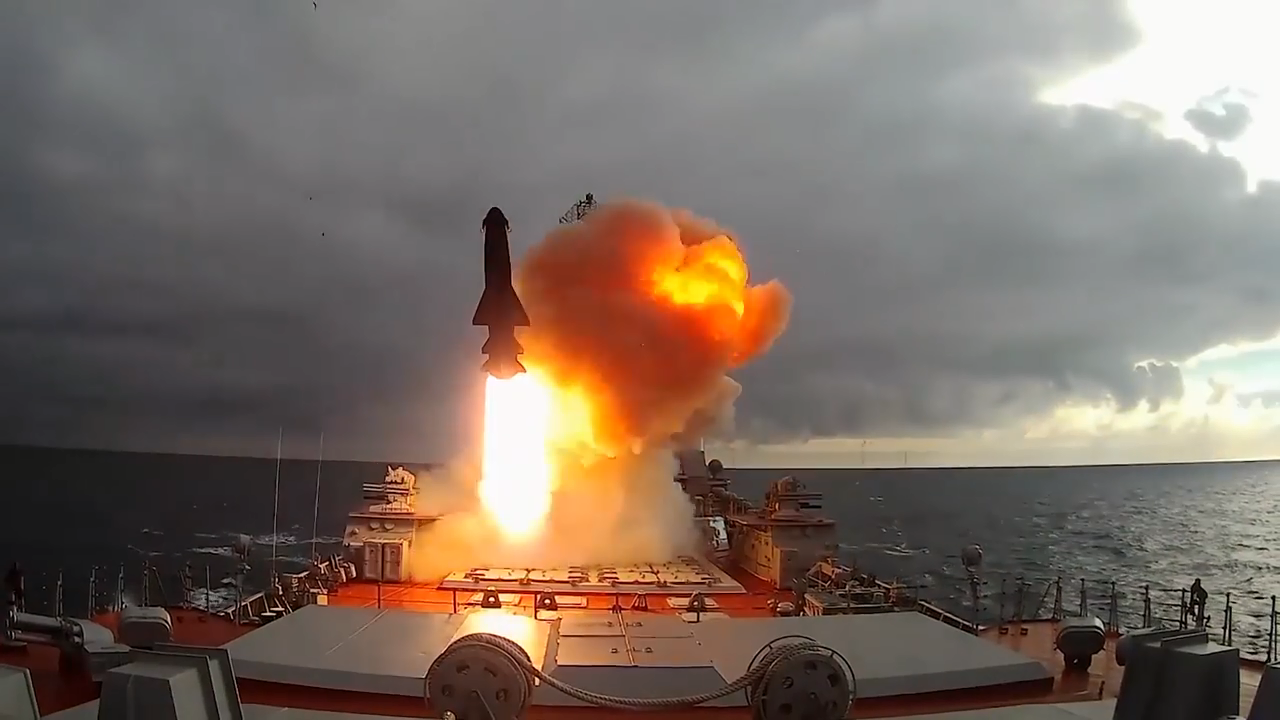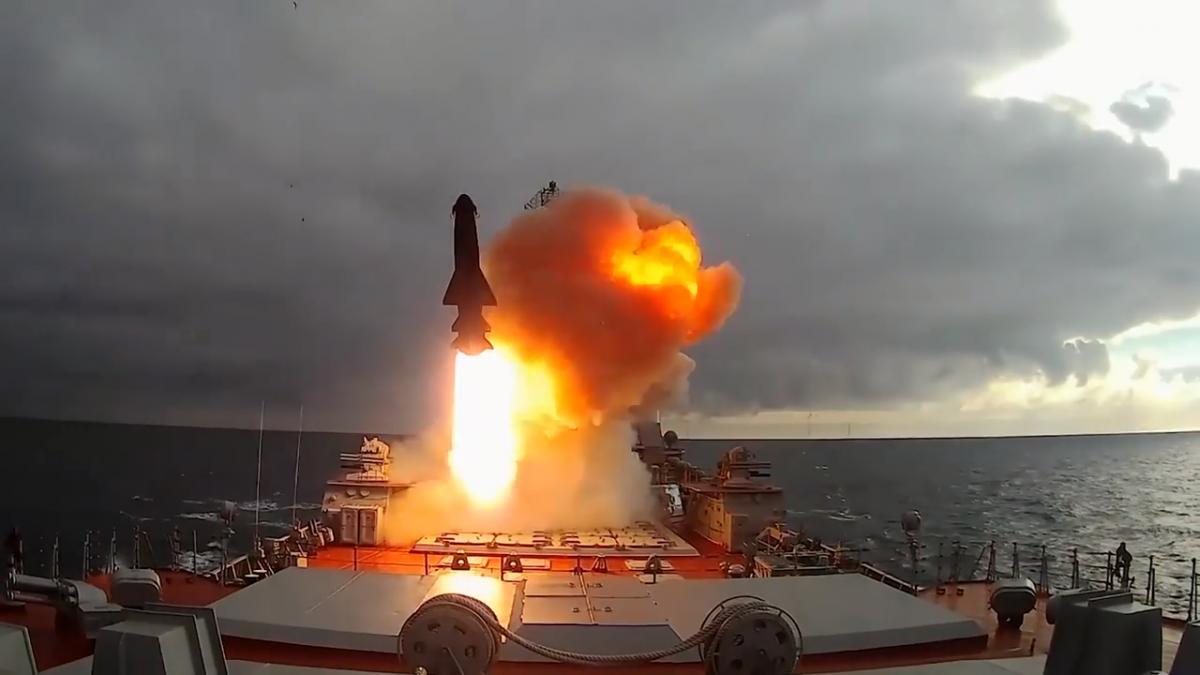
Russia has reportedly tested a missile too fast to be intercepted by any defense platform in the United States—or the world.
The Russian navy has launched more than 10 3M22 Tsirkon anti-ship hypersonic cruise missiles, known to the U.S.-led NATO Western military alliance as SS-N-33, "against targets at sea at a distance of several hundred kilometers" since beginning test trials about four years, according to a defense industry source cited Friday by the state-run Tass Russian News Agency. The source said that the weapons "repeatedly destroyed designated naval targets at the hypersonic speed."
One day earlier, CNBC cited two individuals familiar with a U.S. intelligence report as saying that the Russian navy performed its most recent Tsirkon launch on December 10, when the missile reached Mach 8 speed, meaning eight times the speed of sound or about two miles per second.
"What we are seeing with this particular weapon is that the Russians designed it to have a dual-purpose capability, meaning, it can be used against a target on land as well as a vessel at sea," one of the sources told the outlet. "Last week's successful test showed that the Russians were able to achieve sustained flight, a feat that is crucial in the development of hypersonic weapons."

The U.S. intelligence report allegedly concluded that the Tsirkon missile would begin production in 2021 and could be deployed as early as 2022. CNBC cited the sources as saying that Russia had only performed five total tests of the anti-ship weapon. Such weapons have raised concerns as they were said capable of thwarting modern defense systems with their unprecedented speeds.
"China and Russia are pursuing hypersonic weapons because their speed, altitude, and maneuverability may defeat most missile defense systems, and they may be used to improve long-range conventional and nuclear strike capabilities. There are no existing countermeasures," the Government Accountability Office wrote in its threat assessment report published earlier this month.
In March, Russian President Vladimir Putin revealed that his military was developing a hypersonic cruise missile known as the Kh-47M2 Kinzhal, claiming it could hit an incredible Mach 10. He claimed that "the missile flying at a hypersonic speed, 10 times faster than the speed of sound, can also manoeuvre at all phases of its flight trajectory, which also allows it to overcome all existing and, I think, prospective anti-aircraft and anti-missile defense systems, delivering nuclear and conventional warheads in a range of over 2,000 kilometers [1,243 miles]."
Last week, Tass cited a source as saying that a similar hypersonic weapon would be equipped to the Sukhoi Su-57 fifth-generation multirole stealth fighter. The Tsirkon was reportedly set to first see service with the Kirov-class battle cruisers Admiral Nakhimov and Pyotr Velikiy, both of which are being remodeled as a part of a plan to modernize the Russian navy.
The Defense Advanced Research Project Agency has sought to come up with countermeasures for such weapons. Last month, the U.S. experimental weapons agency said in a statement that it is seeking to "develop and demonstrate a technology that is critical for enabling an advanced interceptor capable of engaging maneuvering hypersonic threats in the upper atmosphere."
Uncommon Knowledge
Newsweek is committed to challenging conventional wisdom and finding connections in the search for common ground.
Newsweek is committed to challenging conventional wisdom and finding connections in the search for common ground.
About the writer
Based in his hometown of Staten Island, New York City, Tom O'Connor is an award-winning Senior Writer of Foreign Policy ... Read more
To read how Newsweek uses AI as a newsroom tool, Click here.








